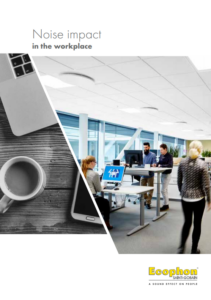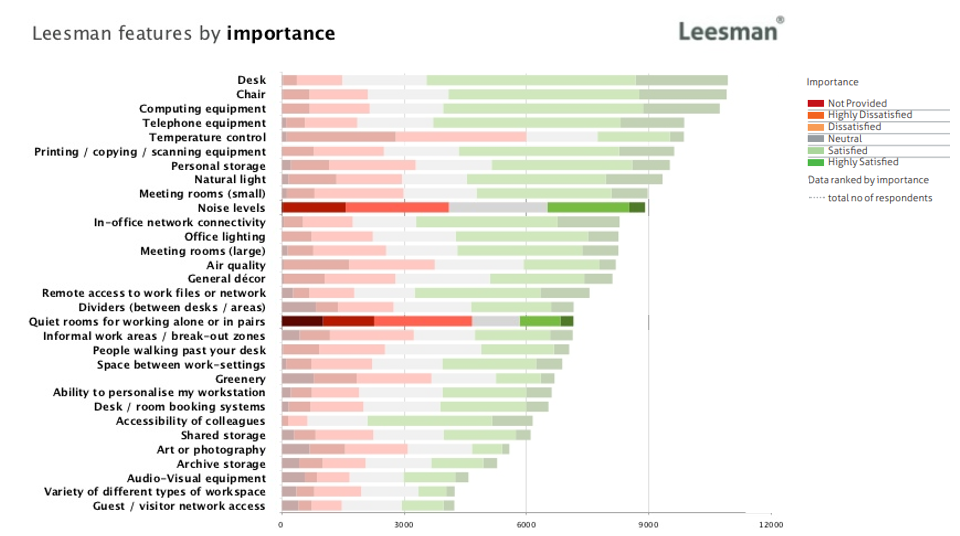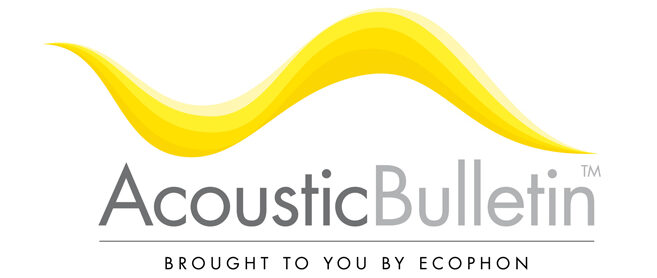
This recently released research summary is a result of a literature review of about 193 studies and presents the most relevant findings on how noise affects people in the workplace. The studies were selected on the basis of scientific quality and as a representation of certain aspects of the impact of noise. This post will briefly present some of the summary’s content.

The extent of the problem
According to data from the Leesman Index, the largest workplace satisfaction survey in the world, almost 70% of workers are dissatisfied with the acoustic conditions in their workplace. Furthermore, issues of noise are ranked among the top three most problematic aspects of the workplace.[1]

Sick leave
Noise is however not just a question of worker satisfaction, but also has a big impact on employee output, as elevated noise is associated with incr
eased sick leave:
We have shown, perhaps for the first time in a large field study, that moderate levels of noise can become harmful, as indicated by increased absenteeism among employees performing complex jobs[2].
Stress levels and performance
Likewise, noise affects workers on a moment to moment basis, raising their stress levels and lowering their level of motivation. Stress hormones have been found to rise by about 30% as a result of elevated noise levels, while motivation for so
lving complex tasks dropped by about 60%[3].

Better productivity and job satisfaction for everybody
The studies presented in this research summary clearly show how detrimental workplace noise is for both individuals and organisations. It is our hope that it will be a useful reference for anybody seeking to bolster their argumentation for better acoustics in the workplace. Both for the betterment of the worker, the organisation and society at large.
Download the entire research summary here.
Sources:
[1] https://www.leesmanindex.com/
[2] The joint effects of noise, job complexity and gender on employee sickness
absence, Fried et al from Journal of Occupational and Organizational
Psychology, 2002
[3] Stress and Open-Office Noise, Journal of Applied Psychology, Evans, Johnson,
Cornell university, 2000

